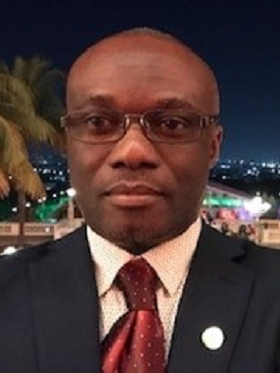
Understanding our history
Liverpool School of Tropical Medicine was established in 1898 as the first institution of its kind in the world undertaking research and teaching in tropical medicine. In our 125th anniversary year, as we reflect on our impact, it is important to acknowledge the origins of LSTM as an organisation which has its roots in colonialism. As we celebrate the impact of our work we are on a journey, reflecting on those origins, to ensure our research, partnerships and education are underpinned by equity with the aim of improving health outcomes in disadvantaged populations globally.
Professor David Lalloo
Director Liverpool School of Tropical Medicine
‘Outlined within our Strategy is a steadfast commitment to becoming an anti-racist organisation. We recognise that to achieve this we must understand and confront our past.
‘Our origins, like those of the city of Liverpool, are rooted in colonialism and imperialism. That shaped our growth and development in the past, but much of our history remains untold.
‘Through our new History and Heritage Strategy we are committed to understanding the stories of those who have shaped LSTM over the years, or who have been impacted by our work. There will, no doubt, be some uncomfortable truths as we seek to better understand our past and decolonise LSTM’s history but we won’t shy away from this and are committed to opening up our archives and working with those both with the lived experience and expertise to help document our past.’

We are developing a long-term History and Heritage Strategy to guide the institution in researching and addressing our colonial past in a structured and meaningful way, which we expect to publish in Spring 2024. In the meantime, we are committed to continuing to evolve our knowledge and understanding of our history.
To date we have:
- Committed to the development of an holistic History and Heritage Strategy, which we expect to publish in Spring 2024
- Created a full-time archivist role to support the important work needed to digitise our archive
Through our Equity and Inclusion team we have also held a thought-provoking public panel discussion entitled ‘Colonial Legacies and Restorative Action’ as part of our Black History Month 2023 programme of events. The panel of leading historians, academics and researchers delivered a series of talks on Liverpool and LSTM’s colonial legacies and tackled topics such as addressing historic and contemporary racial inequities within higher education, global medicine and wider society. You can watch the event here

Dr Uzochukwu Egere
Senior Research Associate
‘As the first institution focused on research and teaching in tropical medicine in the world, and with clear roots in colonialism which has also shaped institutional culture over the years, LSTM is on the difficult but necessary journey to becoming an anti-racist organisation.
'We have established an internal committee to steer this journey, drawing from the commitment and concerted action of colleagues and from systematic school-wide engagement to ensure collective input into the process.
‘While it has not been an easy task to lift off the ground, progress has been made in some key areas since the independent Race Review Report was published. This includes completion of a multi-stage anti-racism training for LSTM’s Executive, a robust review of internal racism reporting mechanisms, regular engagement with regional external stakeholders and the development of a new Global Hubs council. All of which are key steps towards becoming an anti-racist organisation and embedding a more diverse voice from LSTM’s international partners in decision making.
‘A further priority is the urgent need to address LSTM’s history and heritage. The commitment to develop an holistic History and Heritage Strategy to progress this piece of work is both timely and commendable. I would like to thank all colleagues and stakeholders who have already supported this work and contributed useful ideas to shape this journey at LSTM. Our 125th anniversary celebrations provide an opportunity to not only showcase and celebrate LSTM’s impactful science and contribution to fighting disease and poverty but also to draw attention to the institution’s commitment and resolve to become an equitable, diverse, and anti-racist institution.’
Understanding our history forms part of our wider Race Equity Action Plan, which represents LSTM's commitment to becoming an anti-racist institution through recognising and eliminating the racialised barriers that exist which ultimately sustain facets of systemic and institutional racism. The Race Equity Action Plan was released in October 2022, following an independent Race Review led by Professor Jason Arday which was commissioned by the school in the wake of the Black Lives Matter movement, following the murder of George Floyd in May 2020. As we evolve our history and heritage work, we will develop further events for colleagues, students and partners to build our knowledge, and we welcome feedback from all who have contact with us as we progress along this journey.
